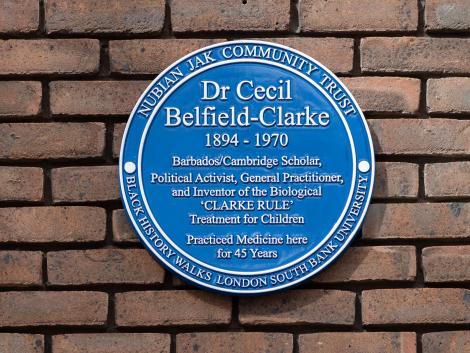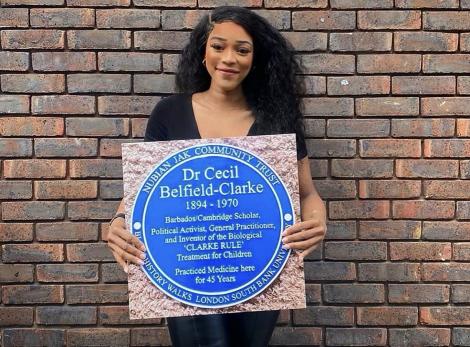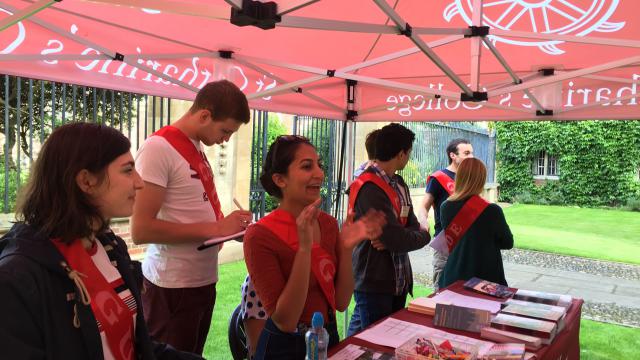
A blue plaque was unveiled this week to commemorate St Catharine’s alumnus Dr Cecil Belfield Clarke (1914, Natural Sciences), one of our earliest Black students on record. The plaque celebrates his contributions as a Barbados/Cambridge scholar, political activist, general practitioner and inventor of what is referred to as ‘Clark’s rule’ (a formula to calculate the dosage of medicine for children).
Dr Colin Higgins (2018), Fellow and Librarian of St Catharine’s, and alumna L’myah Sherae (2018, International Relations and Politics) spoke in support of the blue plaque at an unveiling ceremony in London on 12 April.
L’myah uncovered valuable information about Dr Belfield Clarke for St Catharine's during a research project funded by the College in 2019. Reflecting on the ceremony, she said:
“It was a privilege to speak about Dr Cecil Belfield Clarke during the unveiling of a new plaque to commemorate his life, as a pioneering civil rights leader and a Black gay doctor who served so many. My research in 2019 enabled St Catharine’s to rediscover and celebrate his achievements over the next three years. I am grateful to the College for supporting my research and to everyone who made this blue plaque possible: Black History Walks, the Nubian Jak Community Trust, London South Bank University, and the Black and Asian Studies Association, including Professor Hakim Adi, Marika Sherwood, Steve Martin and Stephen Bourne.”
|
|
|
Dr Higgins oversees the historical archives at St Catharine’s and has supported research projects like L’myah’s that advance the College’s understanding of its legacies of enslavement and Black history. He added:
“The St Catharine’s community takes great pride in the achievements of earlier generations over our 550-year history. We are grateful to L’myah for uncovering information about Dr Cecil Belfield Clarke’s story, which is among the most meaningful and inspiring. In addition to his pioneering contributions to medicine and political activism, he was a strong supporter of the College: he established the Belfield Clarke Prize, which is still given to this day for outstanding performance in Biological Natural Sciences examinations, and left a valuable legacy to us in his will.”
The new plaque is located at 112 Newington Causeway in Elephant and Castle, South London, where Dr Belfield Clarke practiced medicine between 1920 and 1965. His surgery was kept open to the public after it was bombed and badly damaged in World War II, and he served the local community for 45 years until his retirement. In recognition of his medical career, representatives from the British Medical Association and British Medical Journal were among those who spoke at the unveiling ceremony.
The plaque was sponsored by Black History Walks in collaboration with the Nubian Jak Community Trust. The Nubian Jak Community Trust is the only commemorative plaque and sculpture scheme focused on memorialising the historic contributions of Black and minority ethnic people in Britain and beyond – in response to a 2016 review by English Heritage that found only 4% of London’s 900 blue plaques were dedicated to Black and Asian figures from history.
An account of Dr Belfield Clarke’s life has been published on the College website since 2020 at https://www.caths.cam.ac.uk/about-us/history/black-history/c-b-clarke







